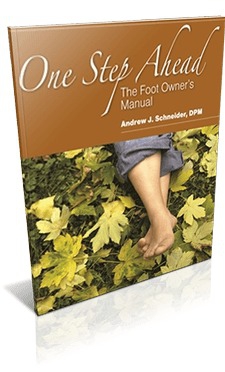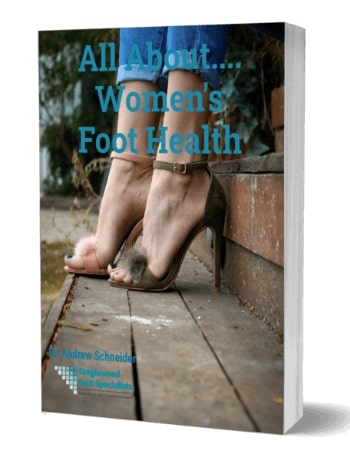
When you're pregnant, you can expect some aches and pains. (Especially if you end up carrying through the hot, humid Houston summer.) So, yes, you're bound to experience some discomfort. But foot pain during pregnancy does not have to be part of your pre-natal experience.
You see, if you have persistent, sharp pain in your heel, it's not normal. In fact, it could be a condition known as plantar fasciitis. Because pregnant women have a higher risk for this condition than almost anyone else. (That was certainly the case for Ashley Tisdale, who recently complained, "The worst part so far during this pregnancy is my plantar fasciitis. It literally hurts just to walk on my feet. I've never felt pain like this and I'm hoping once the baby is here it lets up."
Of course, that's not the only foot problem you may face when pregnant. Many women notice their feet get larger while pregnant. Plus, swollen, achy feet are also a big issue. Most often later in your pregancy. So, how can we stop some of these pregnancy foot problems? Keep reading to find out!
Heel Pain During Pregnancy
Why are pregnant women so susceptible to developing heel pain? First, let’s try to understand exactly what plantar fasciitis is and why the condition flares up. The plantar fascia is a thick band of tissue that runs from the heel bone through the foot’s arch, ending at your toes. This band has a big job to do. It supports your foot and lets you make the motions necessary for walking.
When you’re pregnant, you gain weight as your baby grows. At a faster rate than any other time in your life. Now, this rapid weight gain can put a lot of strain on the plantar fascia, causing it to become inflamed.
Then, you may make that strain worse by wearing easy-to-slip on shoes like flip flops or ballet flats. We know they're simple to wear when it's hard to reach (or see) your toes. But they offer little arch support, so your heel pain only gets worse when you wear them.
And don't forget: your body releases a hormone called relaxin during pregnancy. As a preparation for giving birth, it helps by loosening your ligaments. At the same time, though, it could flatten out your foot
Together, weight gain and relaxin can give can cause pregnant women sharp heel pain. You should suspect its plantar fasciitis if your pain is worst when you get put of bed in the morning. Or when you stand after sitting for a long time.
Now, here's the big question. Should you chalk this pain up to another pregnancy ailment that will pass once the baby comes? And my answer is: no way! If left untreated, plantar fasciitis gets worse. Which means it may linger for weeks, months or even years after your pregnancy ends. In fact, people who ignore plantar fasciitis for too long may even need surgery to find pain relief.
Want to prevent heel pain during pregnancy? First, try to stick to a healthy diet, and your doctor's recommended weekly weight gain. Next, wear supportive shoes for the full 40 weeks of pregnancy. Then, listen to your body. And come in right away if you notice heel pain. Or the other problems we'll discuss next.
Foot Pain During Pregnancy: Flat and Swollen Feet ![Forget flip flops during pregnancy. They can cause pregnancy heel pain]()
Unfortunately, heel pain is not the only pregnancy-related foot problem. Your weight gain causes other changes in your body. That affects your center of gravity and the way you stand. And both put extra pressure on your knees and feet. Together, these changes can lead to flat feet (over-pronation) and swollen feet (edema.)
If you're pregnant, you may notice that your arches flatten when you stand. Also, your feet may roll in when you walk. (We call this over over-pronation. And it can cause the terrible heel pain we discussed above.)
As we mentioned earlier, your feet can swell at any point during your pregnancy. But the problem is most likely in your third trimester. Why is that the case? Well, the swelling happends because you have extra blood during pregnancy. That blood helps nourish your growing baby. But it also builds up while your expanding belly puts pressure on the vessels in your pelvis and legs. Together, this slows your circulation, letting blood pool in your feet and legs. Sometimes, your feet may even look a little purple.
Of course, both problems can be painful and taxing. But it’s important to remember that you don’t need to wait until you have the baby to find relief for your sore feet.
If you’re having issues with over-pronation, we can fit you for orthotics right away. That will give you extra arch support to prevent flat feet. Plus, you'll get help keeping your foot in the right position when you walk. So you're less likely to get heel pain.
I can also offer you the following tips to relieve your swelling feet. First, put them up whenever and wherever you can. If you know you’re going to be sitting all day, keep a little stool next to you. That way, you can take the pressure off your feet throughout the day.
Next, choose well-fitted shoes that aren’t too short or too narrow. (You may need to re-measure your feet during pregnancy as they can grow and change size during this period.) Also, try to stay active with doctor-approved exercises while pregnant. This will help support healthy weight gain and promote better circulation.
The 5 Best Ways to Prevent Foot Pain During Pregnancy
Now that we've covered all the foot problems you should expect for the next few months, let's get back to pain relief. With these top tips, your feet should feel much better!
1. Wear supportive shoes for your whole pregnancy. No flip flops, except for short pool or beach visits!
2. Watch your diet and stay active. This can help with healthy weight gain an better blood flow.
3. Make sure your shoes fit now. You may need to get your feet measured once or more during your pregnancy.
4. Put your feet up whenever you can. You've earned that rest.
5. Consider orthotics to get extra support as your feet work to carry an extra person!
Finally, remember this. Even though foot pain during pregnancy is “normal,” that doesn’t mean you need to put up with it. Because being pregnant is hard enough. So we want your feet to feel better now, not nine months from now! Which means you should schedule an appointment with Dr. Andrew Schneider today! We'll get your feet feeling better and ready to walk right up to your delivery date!
















